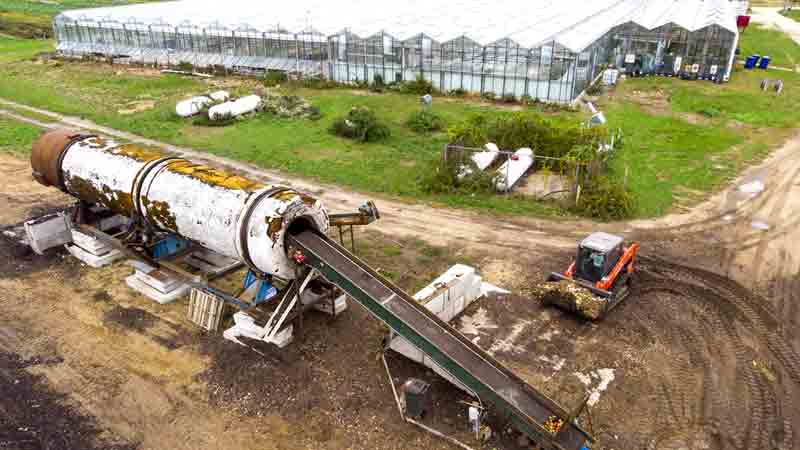The FRC promotes initiatives that prevent wasting food, recovery of edible food for people, and effectively recycling food waste that isn’t consumed. According to EPA, over 1,000 businesses, governments and organizations participated in the 2019 FRC and prevented or diverted over 815,000 tons of food from entering landfills or incinerators, saving participants up to $42.3 million in avoided landfill tipping fees.
In EPA’s New England region, 7 organizations were recognized; 3 also received national recognition: Keene State College in Keene, NH; Katharine Lee Bates Elementary School, Wellesley, MA.; and Signature Bread, Chelsea, MA. Keene State modified its food waste composting program in its common dining area in December 2017 to include all kitchen waste and postconsumer food waste. In a year, it more than doubled the amount of food waste composted — from 41.76 tons in 2017 to 110.66 tons in 2018, resulting in a savings of $4,324 in avoided disposal fees.
A fifth-grade leadership team at the Katherine Lee Bates Elementary School developed recycling areas and signage in the cafeteria to reduce food waste, as well as taught fellow students about waste reduction and sustainable waste management at a school assembly. A program was created for single-stream recycling and food waste diversion in the cafeteria. It expanded to divert unused liquids to an anaerobic digestion facility; donate unopened food to classrooms and the Wellesley Food Pantry; and recycle plastics, cardboard, aluminum, and paper. Signature Bread has pursued projects including diverting dough and bread waste to composting operations or livestock feed; using a food waste compactor with an integrated scale to measure waste; and working with food banks and other local hunger relief organizations to find creative ways to donate excess bread.
Three of the 7 EPA New England winners were recently profiled in BioCycle:
- The Island Grown Initiative’s (Vineyard Haven, MA) Food Waste Reduction and Redirection Project on Martha’s Vineyard works with food that was once taken away as waste and gives it to the hungry or composts it. The project also helps residents, schools and businesses reduce food waste and separate significantly more food waste from trash. Today, all town transfer stations offer food waste drop-off.
- Rhode Island Department of Health (Providence, RI) was recognized for its “Rhode to End Hunger Initiative” in 2018 to promote food donation during department inspections and other outreach opportunities to restaurants and other food service organizations. In the Initiative, the department became the first state agency to use the MEANS Database, a nonprofit food rescue platform. The project resulted in preventing 30,680 pounds of food from being disposed in Rhode Island’s Central Landfill in 2019.
- Central Vermont Solid Waste Management District (Montpelier, VT) has worked with its 27 schools to implement food scrap hauling and food waste prevention services. The District’s 2019 project, “Food Waste Reduction for Greener Schools in Central Vermont,” focused directly on reducing wasted edible food and milk in schools in five Vermont towns. During the 2018-19 school year, food waste was decreased by an average of 17.4 percent and milk waste by 41 percent. Every school surveyed also reduced the portion of food disposed of in their trash, and participating schools as a group decreased the weight of food in the trash by 45 percent.













